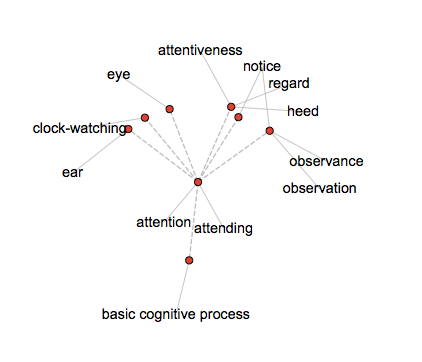Attention Must Be Paid
I’ve been thinking a lot lately about the act of paying attention and what that means. Last year around this same time I came across a cover article in Newsweek entitled Grow Your Mind. It was by Sharon Begley, author of Train Your Mind, Change Your Brain, a book on neuroscience and Buddhism that I read some years ago and liked quite a bit. This past week, I found myself going back to the article because of something I remembered her saying about the act of paying attention. I found this: One of the strongest findings in neuroplasticity, the science of how the brain changes its structure and function in response to input, is that attention is almost magical in its ability to physically alter the brain and enlarge functional circuits. Attention is almost magical. I went back to her book, and found a section in chapter 5: “Attention Must Be Paid.” In it she informs us that any moment, awash as we are in sensory experience, “billions of neurons are being tickled.” Billions! But only a fraction of those neuronal connections register or are stored, even briefly, in our memories. Which of the billion? The ones we direct our attention toward. “Attention,” she says, “pumps up neuronal activity.” It has physical effects. To support this physical effect of attention, she tells of an experiment with monkeys conducted some years ago by Mike Merzenich, a neuroscientist now at UCSF. For six weeks monkeys were simultaneously bombarded with 2 kinds of stimuli: a series of taps on their fingers and a series of sounds coming in through headphones. One group of monkeys was taught to attend to the physical taps through the use of a reward—juice—when the monkey noticed changes in the rhythm of the taps. A second group was taught to attend to the sounds by getting juice whenever they detected a change in the sound pattern. Both groups were receiving identical stimuli—taps and sounds—they were differentiated by which kind of attention was rewarded. When the monkeys’ brains were studied at the end of six weeks it was discovered that those who had attended to their fingers had a 2-3 fold expansion of that part of their brain cortex devoted to fingers—and no change at all in their auditory cortex—even though they’d been exposed to the sounds. The opposite group showed opposite effects—no change in the finger portion of their cortex and significant changes in their auditory cortex. Attention changed what was registered—and processed. Attention changed the physical substrate—and wiring—of the brain. It’s a remarkable finding. Begley quotes Mike Merzenich and his colleague, who make this bold statement in the wake of their findings: Experience coupled with attention leads to physical changes in the structure and future functioning of the nervous system. This leaves us with a clear physiological fact . . . moment by moment we choose and sculpt how our ever-changing minds will work, we choose who we will be the next moment in a very real sense, and these choices are left embossed in physical form on our material selves (159). His words could be a poem: Moment by moment We choose and sculpt Our ever-changing minds. We choose who we will be The next moment— These choices embossed On our selves. This boggles...
read more

